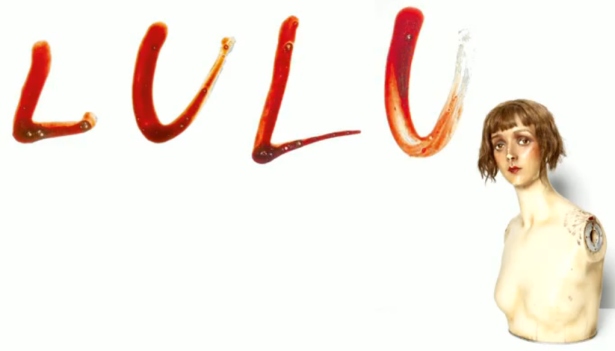The last song, “Junior Dad,” on Lulu (2011) offers compelling evidence that the collaboration between Lou Reed and Metallica actually worked. Their communal guitar drone rolls the sky as Lou purges his soul: “The greatest disappointment” is growing older and weaker, he says, for what awaits? At a Zen-like 19 minutes and 28 seconds the song feels like it can’t go on – it will go on. An impressive candidate for Lou’s highlight reel, without question.
Except that the entire rest of the album, about an hour and 7 minutes, does not address disappointment, but abjection: modeled on the “Lulu plays” of Frank Wedekind that bracingly depict the life of a stripper turned prostitute, giving Lou license to spew disturbing sexual imagery all over the lyrics. And which then seems, almost intentionally so, to crank up the musical disparities between Lou’s love of doo wop and urban blues and Metallica’s devotion to British speed metal.
With regards to making the avant-garde art scene, in the 1960s, the Velvet Underground, the band led by Lou, were pioneers. The members of Metallica arrived late to the party, no doubt an entrance eased by dint of their massive popularity.
An additional problem, albeit a personal one, is that Metallica tends to come across as unintentionally funny. Lou, although well-versed in every aspect of gutter humor, is very aware that this material is not conducive to comedy, at all. From Lou’s perspective, the humorlessness drives home the point that art should never be required to grant enjoyment in the experience of it.
For anyone, then, who knows anything about the disparate worlds of Lou and Metallica, and still holds onto hope that their collaboration on the “Lulu” songs proper will sound somehow harmonious, will have this hope dashed in less than a minute into the opener, “Brandenburg Gate.” The full-metal howl of James Hetfield of Metallica enters at the 56-second mark, with all of the grace of an incel at an orgy. Not only is Lou’s voice, frail from age and hard living, overwhelmed; any links between the two worlds are shattered.
The resulting musical dysfunction, as Jason P. Woodbury has observed, fueled the relentlessly negative reviews. On this matter, the reviewers had an indisputable point: you might as well attempt to find similarities between Lou and Metallica based on their mutual affinity for all-black outfits. Of course, no one ever wore all black cooler than Lou and the VU.
Having 8 more “Lulu” songs, all averaging 8 minutes, to get through, establishes the album as a musical endurance test of the highest order. What initially looks like a possibility for engagement, “Iced Honey” drives its ear-grabbing, dissonant riff into the ground, with Hetfield’s backing vocals again speeding the way. You can only imagine how the relatively less-tuneful songs fare.
Keep in mind, however, that over three decades ago, Lou had already gone much further out on the sonic brink than where he was with the VU. In 1975, he recorded layers of feedback, distortion, and whatever else he could wrench out of his electric guitar, electronically processing this noisescape into Metal Machine Music, which lasted over an hour. Not coincidentally, the reaction was similar to that of Lulu.
Maybe Lou thought, near the end of his life (he died in 2013), the time was right for “Metal” Machine Music: Part II. According to Woodbury, the members of Metallica didn’t know exactly what the deal was, having thought they’d been enlisted to record more conventionally-sounding songs, only to have Lou abruptly change course at the last minute before they went into the studio.
If Lulu is regarded as a provocative conceptual artwork, its grinding repetition becomes a feature, not a bug. Leading up to the final release of “Junior Dad,” “Frustration” (an apt title, surely) and “Dragon” have the same underlying guitar figure, with the acoustic guitar scraping of “Little Dog” serving as an interlude.
For Metallica albums, it was customary to tack on an acoustic power ballad, or two, to broaden their appeal. Lou, conversely, isn’t about to permit the formulaic addition of lighter/brighter instrumental textures to provide a rather simplistic contrast with the darkness of the life he’s describing. In Lou’s mind, making the acoustic guitars in “Little Dog” sound like rusty knife blades is essential for its animalistic theater of cruelty:
Tell me what it is you want
You sniff your shit in the wind
Follow me around
Pathetic little dog
Besides the obvious suggestion that Lou doesn’t intend to go gently into that good night, we might ask how Lulu helps us, or not help us, in determining his legacy. If Lou’s career vacillates between aggression and then belated reconciliation, maybe “Junior Dad” fits the album better than previously assumed. Of course, Lou always had a mind for leaving – the VU song, “Heroin,” stated such an intention from the start. Even then, as to where he’d end up, he said:
And I guess I just don’t know
Oh, and I guess I just don’t know
To sum up Lulu, Lou knows that now better than he ever did before.


